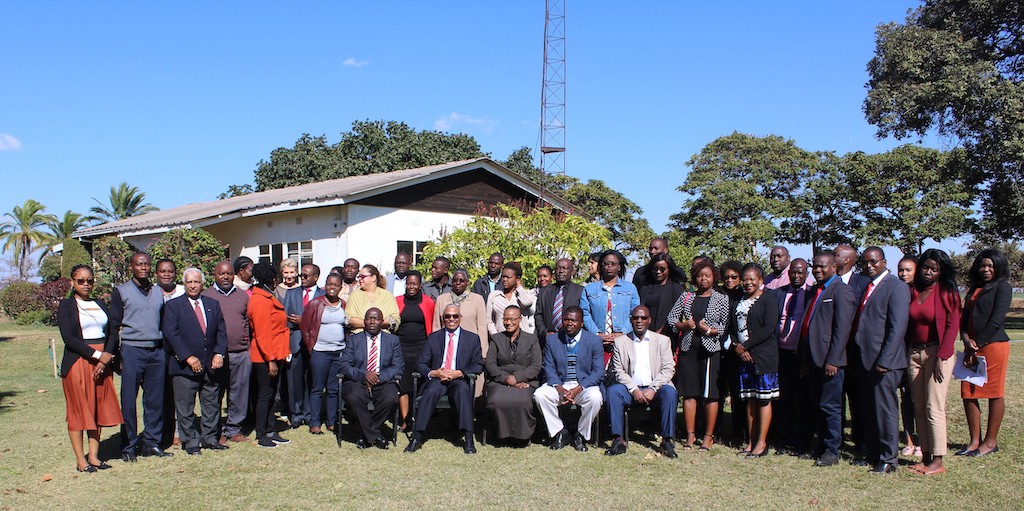Climate variability and change has become a major threat to sustainable development in Zambia. The country is already experiencing climate-induced hazards which include drought, floods and extreme temperatures. Droughts and floods have increased in frequency and intensity over the past few decades and have adversely impacted food and water security, water quality, energy and livelihoods of the people, especially in rural communities. Such impacts are likely to compound the daunting economic and social challenges the country already faces.
In order to strengthen individual knowledge, skills and institutional capacities to foster green, low emission, and climate-resilient development, the country has launched a national UN CC:Learn project. This aims to strengthen learning and skills development to address climate change in Zambia with the specific objective of advancing the Nationally Determined Contribution (NDC) and the National Adaptation Plan (NAP).
Under the leadership of the Climate Change and Natural Resources Management Department of the Ministry of Lands and Natural Resources Management, together with the Zambian Environmental Management Agency (ZEMA) and the Zambia Climate Change Network (ZCCN), the project was launched at the National Inception and Planning Workshop on the 16th and 17th July 2019. The event, held at the Ibis Gardens (Chinsamba), brought together national stakeholders representing various climate change relevant stakeholders to discuss Zambia’s climate change learning priorities, and to set out the development of the country’s National Climate Change Learning.
In her opening remarks, the United Nations Resident Coordinator in Zambia Ms. Coumba Mar Gadio highlighted how UN CC:Learn’s support comes at an important time “…when Zambia is building up efforts to enhance skills and capacities in addressing the risks and impacts of climate change…”. The development and implementation of the National Climate Change Learning strategy “will aid Zambia in achieving its NDC by ensuring enhanced capacities and skills to address the associated climate risks and impacts”.
The Permanent Secretary (PS) of the Ministry of Lands and Natural Resources welcomed the project and reflected on although much has been done in terms of climate action in the country such as creating an enabling environment, “… the level of climate change learning and skills development remains low to match the growing needs.”. The PS further highlighted the importance of knowledge and skills bridge for the general population to be able to link on-going efforts and the changing climate. “UN CC:Learn can efficiently fill the gap especially in climate change communication by creating sustainable capacities in individuals and institutions who can ably plan and implement effective climate change actions”.
In his opening remarks, the Director-General for the Zambia Environmental Management Agency (ZEMA), welcomed the UN CC:Learn support at a time when the level of climate change awareness in the country was found to below, in a national survey that was conducted in 2017, and this demand for enhanced environmental education programs as enshrined in the environmental management act no. 12 of 2011.
Stakeholders included representatives of various government sectors, private sector, youth representatives, media, academia, NGOs and discussed how a national climate change learning strategy may support the implementation of the country’s NDC and national adaptation planning (NAP).
The strategy will be developed in a multi-stakeholder consultative process and is expected to be launched by mid-2020 and starting with the implementation of one or two immediate need priority actions before the current phase of the project ends in August 2020. Although the project will be focusing on national needs, the project has a strong knowledge and regional experience sharing focus, building on the experience of Malawi and collaboration with Zimbabwe and MIET Africa, an innovative education NGO that works with SADC governments to support the provision of quality education in the SADC region.

The project is being implemented through the United Nations Development Programme (UNDP) supported NDC Support Programme for Zambia.
